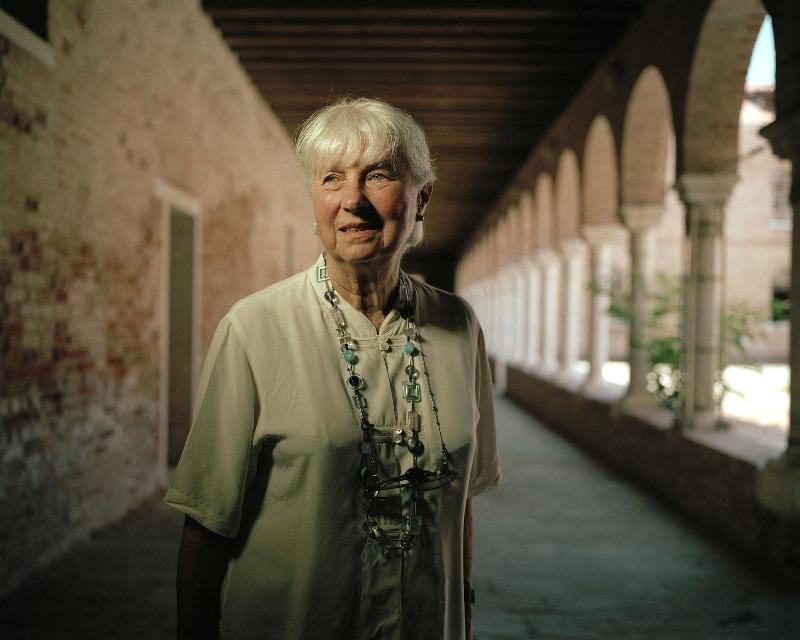The Sound and the Fury, BBC Four | reviews, news & interviews
The Sound and the Fury, BBC Four
The Sound and the Fury, BBC Four
The rest is a spring: series on 20th-century music moves in double quick time

As Julian Lloyd Webber combatively suggests of certain strands of 20th-century music: “Let’s make a noise no one likes.
Partly encouraged by the fact that Alex Ross’s The Rest Is Noise has become a bestseller (who knew so many people could be interested in Xenakis and Berg?), The Sound and the Fury handily coincides with the Southbank’s season of the same name. A classier version of what has become the BBC Four house style for music TV, it featured stock footage, snippets of performance and an array of interviews. A fairly heavyweight bunch of composers included Steve Reich, John Adams, George Benjamin, Meredith Monk and Pierre Boulez - and in the next two, John Tavener, Philip Glass and Arvo Pärt. Other pronouncements came from music historians and critics, notably Ross (pictured below), and Schoenberg's daughter. Even so, I wouldn’t be surprised if programme-maker Ian MacMillan had to put up with execs saying "Can’t we get anyone sexier from the pop world, like Björk?"
The Rite of Spring's rhythms were like facing a boxer not knowing where the next punch was coming from
A problem with securing a plethora of pundits is they have to operate at sound-bite length. Some here were memorable: Ross on how The Rite of Spring’s rhythms were like facing a boxer not knowing where the next punch was coming from, or Tom Service arguing that listening to Webern’s unearthly weightless music is like watching a plant or crystal under a microscope (John Adams suggested it is “emotionally stingy”). But there was no time to elaborate on or develop a coherent argument.
This first episode, entitled Wrecking Ball, did make lots of useful connections: we heard how the prickly, tense music of the Viennese School had some parallels with painters like Egon Schiele, how the lack of any “home” key was perhaps a Jewish reaction to anti-Semitism, and how in general the 20th century was the most violent century ever, so why wouldn’t the music reflect that? But it may well have worked better with a more opinionated, central figure who could make clear that their choices of what to cover (no British music worth mentioning in this episode) was a personal one, rather than attempting and failing to be “definitive”.
 By covering so much territory (the first episode took us up to the Second World War, and mentioned that shocking fact that many composers were sympathetic to Fascism), the drawback was Stravinsky was "done" in 10 minutes. The advantage was instant connections – how Charles Ives used vernacular music in a similar way to Stravinsky, for example - and it may be that some viewers who love Stravinsky will be encouraged to discover Ives.
By covering so much territory (the first episode took us up to the Second World War, and mentioned that shocking fact that many composers were sympathetic to Fascism), the drawback was Stravinsky was "done" in 10 minutes. The advantage was instant connections – how Charles Ives used vernacular music in a similar way to Stravinsky, for example - and it may be that some viewers who love Stravinsky will be encouraged to discover Ives.
The production values and commissioned performances are of high-quality and as a basic introduction into the sometimes hermetic world of some 20th-century music it works (and the next two programmes will have more live composers to interview). One can only hope for more in-depth programmes on specific movements or composers which can do more than skate over the surface. Meanwhile, interest piqued, we can all go to the Southbank for several hundred hours of their 20th-century season.
Explore topics
Share this article
The future of Arts Journalism
You can stop theartsdesk.com closing!
We urgently need financing to survive. Our fundraising drive has thus far raised £49,000 but we need to reach £100,000 or we will be forced to close. Please contribute here: https://gofund.me/c3f6033d
And if you can forward this information to anyone who might assist, we’d be grateful.

Subscribe to theartsdesk.com
Thank you for continuing to read our work on theartsdesk.com. For unlimited access to every article in its entirety, including our archive of more than 15,000 pieces, we're asking for £5 per month or £40 per year. We feel it's a very good deal, and hope you do too.
To take a subscription now simply click here.
And if you're looking for that extra gift for a friend or family member, why not treat them to a theartsdesk.com gift subscription?

Add comment